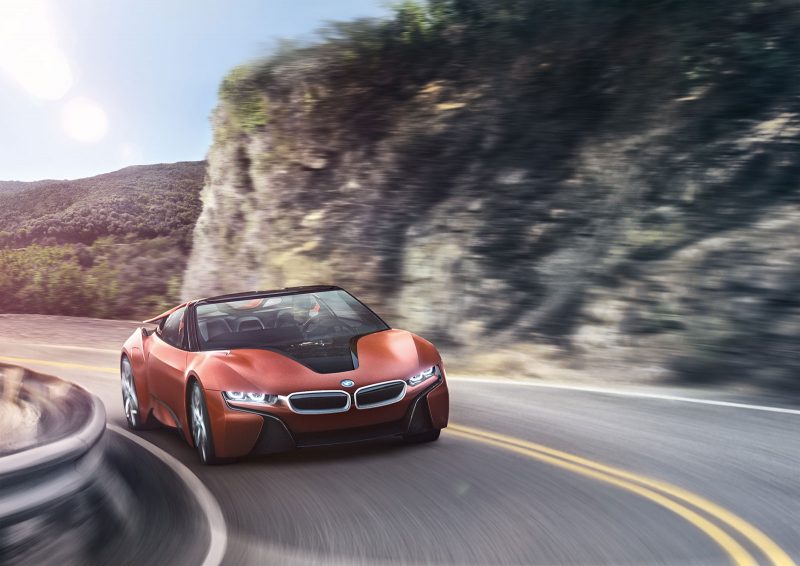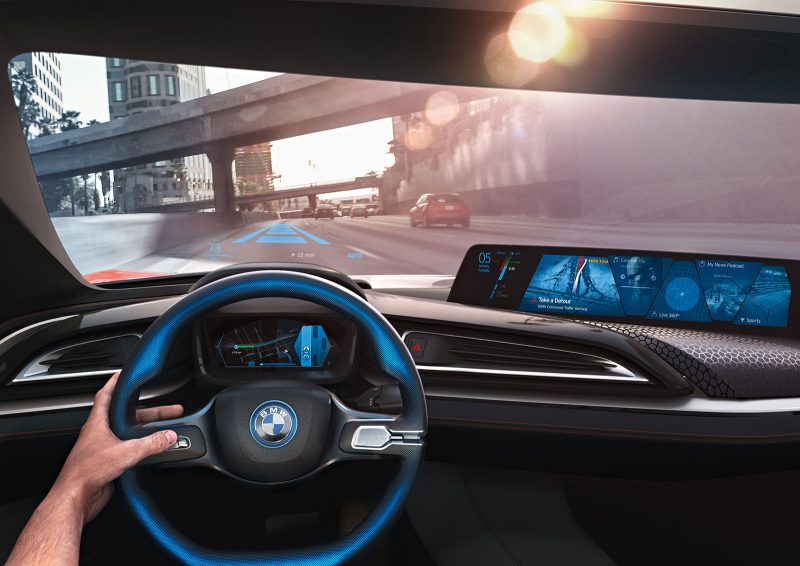BMW Group, Intel and Mobileye are creating an open platform for the next generation of cars to create a safe autonomous platform, from door locks to the datacenter.
Intel needs little introduction as the world’s largest chip maker who manufacture and supply computer chips for every conceivable device, from you home computer to – now – your car. It’s no surprise that car manufacturers are turning to established IT brands for hardware and software needs as cars become more and more like yet another appliance.
Mobileye might not be quite so well-known, but it is a small company making big waves and punching well above its weight in one specific area – autonomous cars. The Israel based company is fast becoming the go-to company for autonomous tech with the likes of Tesla already making full use of the company’s technology. Primarily, Mobileye focuses on software that uses a variety of sensors to see or “interpret” a situation in real-time. “Using sophisticated vision algorithms, Mobileye collision avoidance technology is able to ‘interpret’ a scene in real-time and provide drivers with an immediate evaluation based on its analysis,” says the website.
Following the announcement, the three leaders from the automotive, technology and computer vision & machine learning industries plan to bring solutions for highly and/or fully automated driving into series production as soon as 2021. As this implies, there’ll be both fully automated systems as well as complimentary driving aids that don’t take over the car in its entirety.
BMW’s outlandish iNEXT concept will pave the way and provide a foundation for the BMW Group’s autonomous future direction. Interestingly, BMW see autonomous tech making its way to urban environments rather than solely motorway situations as has already been seen from the likes of Tesla. The aim is to be able to allow drivers to take their hands off the wheel, bring back undistracted conversation to cars and effectively make them into personal mini trains that glide seamlessly along the road towards a chosen destination, while providing a comfortable and safe environment and of course a plethora of creature comforts and entertainment too.
It’s a big challenge and one that the companies believe they can make into a reality within just a few short years. Crucially, the companies aren’t holding all the cards close to their chest and instead expect to licence the technology out to other manufacturers or industries who might benefit. In the near term, the companies expect to show off an autonomous test drive with a “highly automated driving (HAD) prototype and in 2017, the platform is scheduled to extend to fleets for extended autonomous driving.
To read the full press release, see below.
The future of automated driving promises to change lives and societies for the better. But the path to get to a fully autonomous world is complex and will require end-to-end solutions that integrate intelligence across the network, from door locks to the data center. Transportation providers of the future must harness rapidly evolving technologies, collaborate with totally new partners, and prepare for disruptive opportunities.
Together with Intel and Mobileye, the BMW Group will develop the necessary solutions and innovative systems for highly and fully automated driving to bring these technologies into series production by 2021. The BMW iNEXT model will be the foundation for BMW Group’s autonomous driving strategy and set the basis for fleets of fully autonomous vehicles, not only on highways but also in urban environments for the purpose of automated ridesharing solutions.
BMW Group, Intel and Mobileye are convinced that automated driving technologies will make travel safer and easier. The goal of the collaboration is to develop future-proofed solutions that enable the drivers to not only take their hands off the steering wheel, but reach the so called “eyes off” (level 3) and ultimately the “mind off” (level 4) level transforming the driver’s in-car time into leisure or work time. This level of autonomy would enable the vehicle, on a technical level, to achieve the final stage of traveling “driver off” (level 5) without a human driver inside. This establishes the opportunity for self-driving fleets by 2021 and lays the foundation for entirely new business models in a connected, mobile world.
On July 1, 2016, the three partners were present at the BMW Group Headquarters in Munich to express their commitment to strive for an industry standard and define an open platform for autonomous driving. The common platform will address level 3 to level 5 automated driving and will be made available to multiple car vendors and other industries who could benefit from autonomous machines and deep machine learning.
The companies have agreed to a set of deliverables and milestones to deliver fully autonomous cars based on a common reference architecture. Near term, the companies will demonstrate an autonomous test drive with a highly automated driving (HAD) prototype. In 2017 the platform will extend to fleets with extended autonomous test drives.
“Today marks an important milestone for the automotive industry as we enter a world of new mobility. Together with BMW Group and Intel, Mobileye is laying the groundwork for the technology of future mobility that enables fully autonomous driving to become a reality within the next few years,” said Mobileye Co-Founder, Chairman and CTO Professor Amnon Shashua.
“Mobileye is proud to contribute our expertise in sensing, localization, and driver policy to enable fully autonomous driving in this cooperation. The processing of sensing, like our capabilities to understand the driving scene through a single camera already, will be deployed on Mobileye’s latest system-on-chip, the EyeQ®5, and the collaborative development of fusion algorithms will be deployed on Intel computing platforms. In addition, Mobileye Road Experience Management (REM) technology will provide real-time precise localization and model the driving scene to essentially support fully autonomous driving.”
Intel brings a comprehensive portfolio of technology to power and connect billions of smart and connected devices, including cars. To handle the complex workloads required for autonomous cars in urban environments Intel provides the compute power that scales from Intel® Atom™ to Intel® Xeon™ processors delivering up to a total of 100 teraflops of power efficient performance without having to rewrite code.
“Highly autonomous cars and everything they connect to will require powerful and reliable electronic brains to make them smart enough to navigate traffic and avoid accidents,” said Intel CEO Brian Krzanich. “This partnership between BMW Group, Intel and Mobileye will help us to quickly deliver on our vision to reinvent the driving experience. We bring a broad set of in-vehicle and cloud computing, connectivity, safety and security, and machine-learning assets to this collaboration enabling a truly end to end solution.”
With its Strategy Number ONE > NEXT, the BMW Group has developed its framework to remain the driving force behind premium individual mobility. This approach will become driving reality with the BMW iNEXT model in 2021, heralding a new era of mobility.
“At the BMW Group we always strive for technological leadership. This partnership underscores our Strategy Number ONE > NEXT to shape the individual mobility of the future,” stated Harald Krüger, Chairman of the Board of Management of BMW AG. “Following our investment in high definition live map technology at HERE, the combined expertise of Intel, Mobileye and the BMW Group will deliver the next core building block to bring fully automated driving technology to the street. We have already showcased such groundbreaking solutions in our VISION NEXT 100 vehicle concepts. With this technological leap forward, we are offering our customers a whole new level of sheer driving pleasure whilst pioneering new concepts for premium mobility.”
Source; BMW


